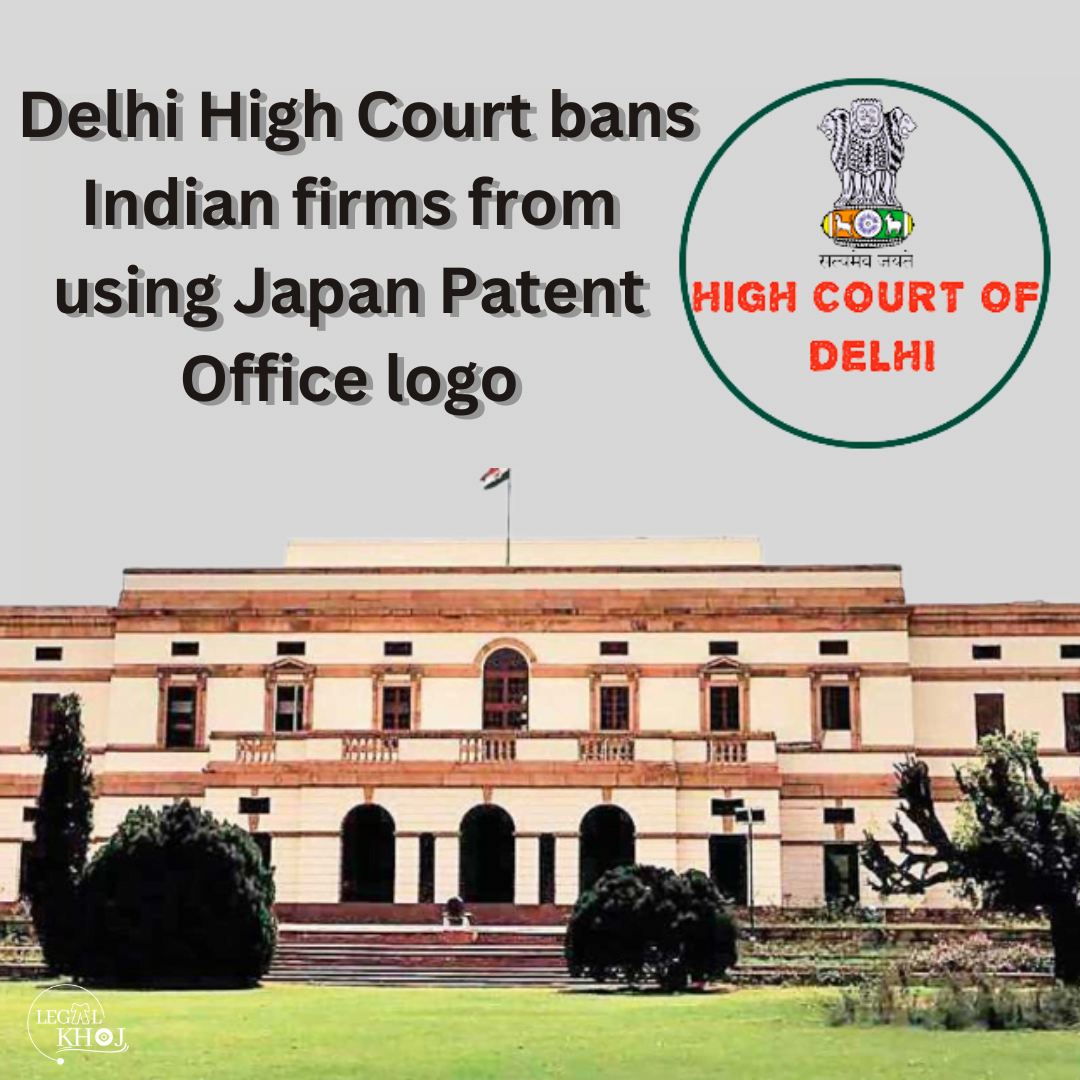Court bans Indian firms’ logo resembling Japan Patent Office
Background: The Significance of Japan Patent Office Logo
The Japan Patent Office, stationed in Kasumigaseki, Chiyoda, Tokyo, holds a prestigious position in the global arena of intellectual property rights. Established in 1885 with the enactment of the Patent Monopoly Act in Japan, the JPO symbolizes the country’s commitment to fostering innovation and creativity. Over the years, it has become one of the five largest patent offices globally, alongside renowned entities like the European Patent Office (EPO), Korean Intellectual Property Office (KIPO),China’s Intellectual Property Administration (CNIPA) and the United States’ Patent and Trademark Office (USPTO).
India and Japan share a notable partnership in the realm of intellectual property, highlighted by the establishment of a Patent Prosecution Highway in 2019. This collaboration underscores the mutual goodwill between the two nations, emphasizing the importance of respecting each other’s intellectual property rights.
The Japan Patent Office logo, a symbol of its rich heritage, was meticulously crafted and adopted in 2011, commemorating the 125th anniversary of Japan’s Industrial Property Rights System. Despite lacking a registered trademark or copyright, the logo was, without a doubt, an original artistic work entitled to copyright protection under Section 14 of the Copyright Act, 1957, owing to Japan’s membership in the World Trade Organization (WTO).
The Allegation and Court’s Verdict: Japan Patent Office Logo

The most important point of the plaintiff’s argument rested on the defendants’ unauthorized and blatant imitation of the Japan Patent Office logo and mark. The court, under the stewardship of Justice Prathiba M Singh ,meticulously examined the evidence presented. The defendants’ use of an identical color combination and logo left no room for doubt; it was a clear-cut case of infringement and imitation. The court acknowledged the logo’s status as an original artistic creation, deserving of copyright protection.
Despite the absence of a trademark registration, the court affirmed the plaintiff’s exclusive rights to the logo under copyright law. It emphasized that the Japan Patent Office, being a reputable international organization, could not have anticipated such a flagrant imitation of its emblem. In the absence of any trademark application, the court underlined the explicable reasons behind the JPO’s non-registration.
Crucially, the court recognized the implications of the defendants’ actions. Their use of the identical mark and logo not only violated the plaintiff’s goodwill and brand equity but also posed a significant risk of diluting the Japan Patent Office logo and mark. Considering these factors, the court determined that an injunction was not only warranted but essential to prevent irreparable harm to the plaintiff’s reputation and goodwill.
Balancing Justice: Prima Facie Case Japan Patent Office Logo
The court’s ruling hinged on the establishment of a prima facie case. In cases concerning trademark violations and passing off, the existence of a prima facie case, even at the ex-parte stage, warranted the issuance of an injunction. In this case, the evidence presented unequivocally supported the plaintiff’s claims, reinforcing the necessity of immediate legal intervention.
Moreover, the court carefully weighed the balance of convenience. It acknowledged the impeccable reputation of the JPO as a global patent office responsible for safeguarding the intellectual property rights of various entities. Denying an injunction, in this case, would not only jeopardize the Japan Patent Office standing but also lead to irreversible damage, potentially tarnishing its reputation and diminishing its brand equity.
Conclusion: Upholding the Sanctity of the Japan Patent Office Logo
The proceedings, the Delhi High Court, through its decisive ruling, underscored the paramount importance of protecting intellectual property rights, especially in the international arena. The case not only served as a testament to the Japan Patent Office’s determination to safeguard its emblem but also highlighted the broader implications of such legal battles. It emphasized the significance of trademarks and logos as vital components of an organization’s identity and integrity.
This landmark case serves as a beacon, guiding businesses, organizations, and legal practitioners in their endeavors to protect intellectual property rights. The court’s verdict not only defended the sanctity of the Japan Patent Office logo but also reinforced the principles of fairness, integrity, and justice in the realm of intellectual property. As the legal community reflects on this case, it stands as a testament to the vigilance required in safeguarding intellectual property rights, ensuring that creativity and innovation continue to flourish in a world that values and protects these invaluable assets.
Must Read:-









Leave a Reply